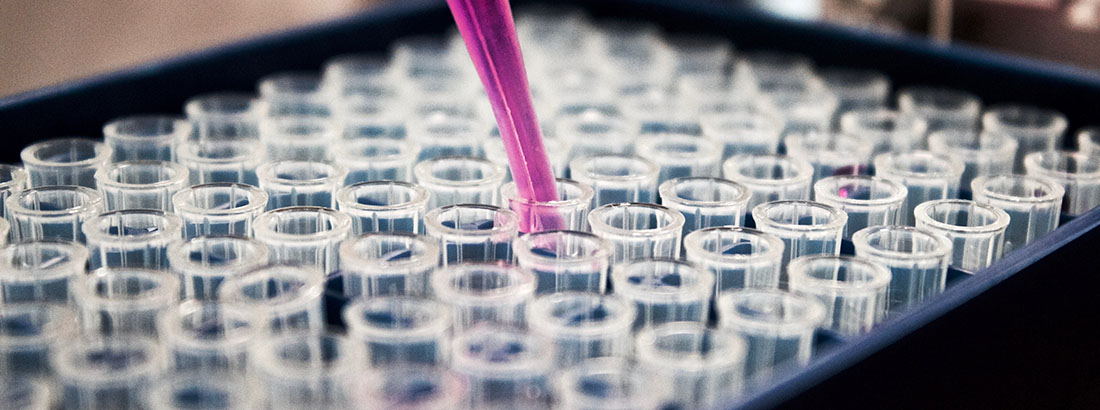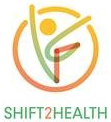
RESEARCH AREAS
Metabolomics & Biomarkers

Research projects
HotFacets is set to generate insight into the effects of acute alcohol consumption on short-chain fatty acids dynamics, energy metabolism, and biomarkers.
Key research questions
- Study the effects of acute alcohol consumption on resting energy expenditure, thermogenesis, and substrate oxidation.
- Validate biomarkers of alcohol intake.
- Explore the potential low-level alcohol production in the gut.
 Scientific context
Scientific context
Despite the negative health consequences of chronic alcohol abuse, moderate alcohol consumption (half to 2 drinks a day) is associated in observational studies with a 20-30% lower risk of CVD and Type-2 Diabetes.
The mechanism(s) of action for its effects on cardiometabolic health and energy homeostasis are poorly understood and possible overshadowed by potential confounding.
Some aspects of alcohol metabolism and biomarker validation could inform a longer, well-designed intervention trial to clarify mechanisms of actions and infer causality between moderate alcohol intake and protective health effects.
Funded by
Semper Anders grant from the Carlsberg Foundation
Period: September 2021 – June 2024.
Contact
Postdoc Catalina Cuparencu
Professor Lars Ove Dragsted
The DNA adductomics project will give new insights into the causes of DNA damage in colorectal cancer, leading to the development of new preventive and therapeutic approaches.
Colorectal cancer (CRC) develops as a result of multiple genetic damage, including the chemical interaction of toxic molecules with DNA, forming DNA adducts.
These toxic compounds may come from exogenous sources such as environment, diet and gut microbiota or from our endogenous metabolic processes such as inflammation.
Central focus areas
- The first purpose of the project is to identify DNA adducts related to CRC in colon tissues from patients with CRC vs controls, by using a UHPLC-HRMS based untargeted DNA adductomics.
This will possibly lead to the understanding of the causes of DNA damage and to develop new therapeutical approaches towards CRC. - The second purpose of the project is to identify DNA adducts in urine, blood or faecal samples from the same patients, to understand whether the systemic levels reflect the local DNA adduct levels.
This will allow to perform future studies by a less invasive sample collection and therefore to develop new diagnostic and preventive approaches.
DNA adduct database
We built the first comprehensive database for DNA adductomics.
The full development of this database and its integration with MS/MS spectra and informatics tools will allow DNA adductomics to play a major role in systems toxicology, cancer genotoxicity, and cancer prevention.
Currently, the database includes 582 adducts coming from 16 genotoxicant classes and different sources. It contains a systematic collection of DNA adducts, where names, structures and sources have been harmonized and manually curated.
Information on structure, molecular formula, monoisotopic mass, and in silico predicted fragments are provided. Data are presented in publicly available interactive and searchable data tables in the repository (https://gitlab.com/nexsmetabolomics/projects/dna_adductomics_database).
A Comprehensive Database for DNA Adductomics. Giorgia La Barbera, Katrine Dalmo Nommesen, Catalina Cuparencu, Jan Stanstrup and Lars Ove Dragsted (2022) Frontiers in Chemistry. https://doi.org/10.3389/fchem.2022.908572
Funded by
Marie-Curie Individual Fellowship (Horizon H2020-EU)
Period: May 2019 – September 2021
Contact
Giorgia La Barbera, glb@nexs.ku.dk
Professor Lars Ove Dragsted
Development and evaluation of strategies to reduce and  prevent obesity in shift workers
prevent obesity in shift workers
Shift work (rotating and night shifts) may increase the risk of developing overweight and obesity through mechanisms that are not entirely described. Shift2health targets shift workers from the healthcare and industrial sectors, two major sectors where working in shifts is common.
Shift2Health is set to understand basic biological and psychosocial pathways, dietary behaviors and perceptual determinants of (un)healthy food choices related to circadian misalignment in a cross-sectional study. As a result, evidence-based guidelines, best practices and multi-disciplinary preventive strategies, as well as specific products will be developed and tested in intervention studies. The project takes place in seven European countries.
Read about SHIFT2HEALTH EU Project
Focus areas
- Biological pathways related to microbiome, metabolic health and inflammation
- Pre-obesity biomarkers
- Expectations, wishes and needs of shift workers
Involved in the project
Assistant Professor Catalina Cuparencu
Professor Lars Ove Dragsted
Funded by
HORIZON Europe Framework Programme.
An interactive platform for sharing and analysing data from finalised studies.

DASH-IN (Data Sharing in Nutrition) is an interactive platform for sharing and analysing data from finalised studies.
There is an increased demand on researchers to share and to re-use data, including complex data such as metabolomics. But few systems exist that allow such sharing to take place in an environment that the researchers can trust.
The DASH-IN system was created as a joint effort in the ENPADASI project and will continue being developed as a shared infrastructure under ESFRI.
Funded by
The Danish efforts are supported in part by the Carlsberg Foundation.
Contact
Professor Lars Ove Dragsted
Assistant professor Jan Stanstrup
An interactive platform for sharing structured and reusable research data
 Data hubs containing well-structured data are needed frequently in many collaborative projects, accessible by all partners.
Data hubs containing well-structured data are needed frequently in many collaborative projects, accessible by all partners.
Increased demands on researchers to share published data sets to support re-use of data for other studies or for teaching are more and more common, including for complex data sets such as metabolomics.
Yet, few applications exist that enable such sharing to take place in a structured and controllable way, that are truly FAIR (findability, accessibility, interoperability, and reusability).
More often data is dumped into repositories in unstructured way, leaving it up to the prospective user to understand how the data relates to the study conducted.
Squidr is a generalized database or datahub system that can hold the entire collection of structured data generated in a typical research project.
In Squidr the complete data is structured and described at a level of detail that allows reuse of the data on its own or across studies.
Squidr
- is an interactive platform for sharing research data. It can encompass data from all kinds of biological measurements, omics-datasets, questionnaire data etc
- can be used as a data hub within an ongoing project. Fine-grained access control to the data or data subsets can then be made publicly available or to specific collaborators.
- allows searching across datasets. This is currently only possible for metabolomics features to find other studies with the same metabolite feature. Further development of the system will allow other data to be searched across datasets, e.g. to investigate ranges for a specific assay.
The Squidr system was initiated during the the ENPADASI project to supplement the Phenotype Database and will continue being developed as a shared infrastructure under the European Strategy Forum on Research Infrastructures (ESFRI) and as part of ELIXIR Europe.
The code for the open source system is available at https://gitlab.com/nexs-metabolomics/dash-in-core.
Funded by
The Danish efforts are supported in part by a Semper Ardens grant to Lars Ove Dragsted from the Carlsberg foundation (CF15-0574) and by NEXS.
Contact
Professor Lars Ove Dragsted
Assistant professor Jan Stanstrup
Programmer Finn Sandø-Pedersen
Objective Dietary Assessment in People with Type 2 Diabetes
ODA aims to understand how to perform objective assessment of long-term dietary intake in people with T2D.
Key research question
- how to best assess long-term dietary intake using different biological samples in people with T2D.
Scientific context
Biomarkers of food intake enable objective measures of dietary intake and many candidate food intake biomarkers have been identified and subsequently validated in small-scale human intervention studies with controlled food intake. However, validation of the clinical usefulness in large-scale studies (e.g. cohorts) representative of the general population or specific patient groups has yet to be undertaken.
The key exposure of interest in the study of diet and disease relationships is not what wat consume yesterday, but what has been consumed over a longer time-period. But how to best measure this long-term intake using biomarkers of food intake in people with type 2 diabetes? The ODA study will help answer this fundamental question.
Funded by
The Independent Research Fund Denmark and the Danish Diabetes Association.
Period: January 2022 – December 2026.
Contact
Postdoc Daniel Ibsen
Professor Lars Ove Dragsted
Members
| Name | Title | Phone | |
|---|---|---|---|
| Catalina Sinziana Cuparencu | Assistant Professor | ||
| Finn Sandø-Pedersen | IT Consultant | +4535331479 | |
| Giorgia La Barbera | Assistant Professor | ||
| Jan Stanstrup | Assistant Professor | +4535332859 | |
| Lars Ove Dragsted | Professor | +4535332694 | |
| Nicola Procházková | Postdoc | +4535320472 |

